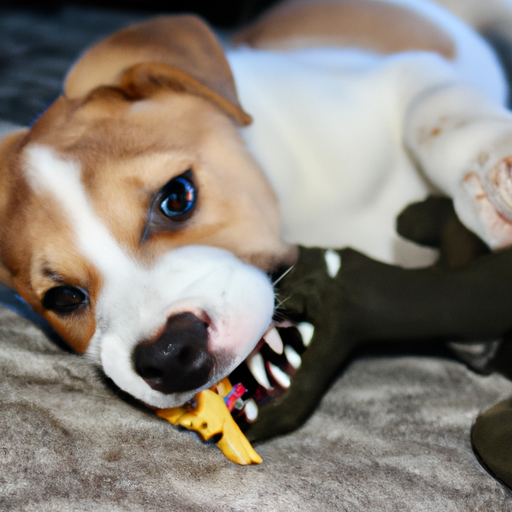As a caregiver, there’s a lot to discover about your new puppy’s development. One of the most intriguing aspects is their dental development. You might be wondering, “When do puppies start losing teeth?” Let’s dive into the topic.
Understanding Your Puppy’s Teeth
Puppies, like human babies, are born without teeth. Their first set of teeth, known as “deciduous” or “milk” teeth, start to appear when they’re about 3-4 weeks old. These are sharp, tiny teeth that help the pup transition from mother’s milk to solid food.
Puppies have a total of 28 milk teeth:
- 12 incisors
- 4 canines
- 12 premolars
When Puppies Begin to Lose Teeth
Puppies typically start losing their milk teeth and begin growing their adult teeth around 3-4 months of age. This is a gradual process and happens over several weeks. The front teeth (incisors) are usually the first to fall out, followed by the canines and premolars.
The Teething Process
Teething is a critical stage in your puppy’s life and can cause discomfort and pain. You may notice your puppy becoming more irritable, chewing on everything in sight, or drooling more than usual. This is a natural response to the discomfort and a sign that their adult teeth are beginning to emerge.
Signs of Teething
Here are some signs that your puppy is teething:
- Increased chewing
- Drooling
- Missing teeth
- Bleeding gums
- Irritability
What to Do During the Teething Phase
As a caregiver, there are several things you can do to help your puppy during this challenging time:
- Provide chew toys: Chew toys can help alleviate your puppy’s discomfort and protect your belongings from their relentless chewing.
- Maintain a balanced diet: Make sure your puppy is getting enough nutrients to support this important growth phase.
- Regular vet checks: Regular check-ups will ensure that your puppy’s teeth are growing properly.
Caring for Your Puppy’s Adult Teeth
Once your puppy’s adult teeth have come in (usually by 6-7 months), it’s important to start dental care. This can include:
- Brushing their teeth regularly
- Providing dental chews
- Regular vet checks
Frequently Asked Questions
Q1: How many adult teeth do dogs have?
A: Dogs have 42 adult teeth, significantly more than the 28 milk teeth they start with.
Q2: What if my puppy’s teeth aren’t falling out?
A: If you notice that your puppy’s adult teeth are coming in but the milk teeth are still in place, it’s best to consult your vet. This condition, known as retained deciduous teeth, may require extraction.
Q3: Can I pull out my puppy’s loose teeth?
A: It’s best to let nature take its course. Pulling out a tooth prematurely can cause unnecessary pain and potentially damage the developing adult tooth.
Q4: When should I start brushing my puppy’s teeth?
A: You can start brushing your puppy’s teeth as soon as they have teeth. Starting early can help your puppy get used to the process.
Q5: How often should I brush my dog’s teeth?
A: Ideally, you should brush your dog’s teeth daily. However, if this is not possible, aim for at least three times a week.
The process of puppies losing their teeth is a normal part of their development, and with your help and care, it can be a smoother and less stressful experience for them. Regular check-ups with your vet will ensure that everything is progressing as it should. Remember, proper dental care is crucial for your puppy’s overall health and well-being.



